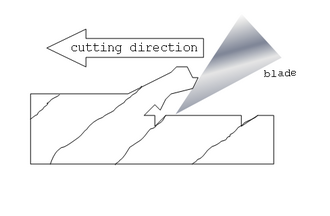Difference between revisions of "Translations:AY Honors/Wood Handicraft/Answer Key/37/en"
(Importing a new version from external source) |
(Importing a new version from external source) |
||
| Line 1: | Line 1: | ||
</noinclude> | </noinclude> | ||
| − | {{: | + | {{:AY Honors/Woodworking Tools/Plane}} |
<noinclude> | <noinclude> | ||
Latest revision as of 23:51, 8 September 2021
A hand plane is a tool for shaping wood. Planes are used to flatten, reduce the thickness of, and impart a smooth surface to a rough piece of lumber.
Hand Planes are one of the most satisfying tools to operate. Clamp the wood securely to a bench, and then push the plane along the grain. The blade should be adjusted so that it takes a thin shaving off the plank. A sharp, well adjusted plane will remove a continuous shaving the entire length of the board. Pay attention to how the grain runs - if the grain dives into the board, make sure the plane's blade does not break the shaving off below the surface. If this happens, try planing in the other direction (see illustration).
Once the blade has been removed from a plane, it can be sharpened in the same fashion as a chisel. It should be sharpened frequently, as this will greatly improve its performance.
A plane should be stored on its side to respect the blade. You should also be very careful to not plane into a nail or a screw, as doing so will put a nasty notch in the blade.


